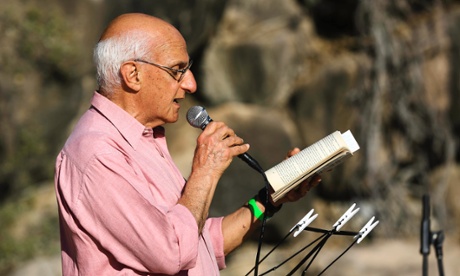
Thirty Australian authors including David Malouf, Thomas Keneally, Helen Garner and Nick Cave have joined an international call for a bill of digital rights to protect people’s privacy on the internet.
Five hundred authors from 100 countries signed the petition, saying they have been pushed into action by the growing knowledge of the extent of mass surveillance, a reference to the revelations in documents provided by the US National Security Agency whistleblower Edward Snowden and published by the Guardian.
Lily Brett, Larissa Behrendt and Frank Moorhouse have put their names to the statement, which says all humans have the right to remain unobserved and unmolested.
“With a few clicks of the mouse the state can access your mobile device, your email, your social networking and internet searches,” the petition says.
“It can follow your political leanings and activities and, in partnership with internet corporations, it collects and stores your data, and thus can predict your consumption and behaviour.
“The basic pillar of democracy is the inviolable integrity of the individual.”
The petition calls on the UN to create an international bill of civil rights which explicitly protects civil rights in the digital age. It has been signed by international authors including Björk, Arundhati Roy and Margaret Atwood.
The petition says mass surveillance treats everyone like a suspect, overturning the presumption of innocence and making the individual “transparent” while the state operates in secret.
“A person under surveillance is no longer free; a society under surveillance is no longer a democracy,” the petition says.
“To maintain any validity, our democratic rights must apply in virtual as in real space.”
The petition comes a week after Guardian Australia revealed the country’s surveillance agency offered to share information collected about ordinary Australian citizens with its major intelligence partners.
The Defence Signals Directorate, now the Australian Signals Directorate, offered to share Australians’ metadata.
“Even if metadata only is being collected now, systems are in place for specific eavesdropping on individuals on a staggering scale,” said Miriam Cosic, a signatory to the petition.
“We cannot be complacent about security and we need to defend our freedoms and our liberal democratic values.
“But we risk turning western democracies into mirror images of the very states and supra-state organisations we deplore.”

